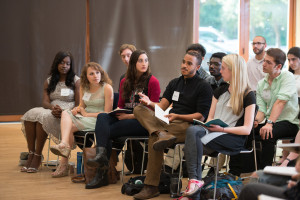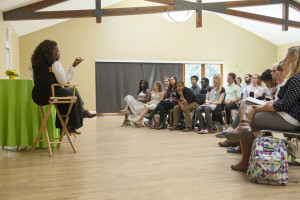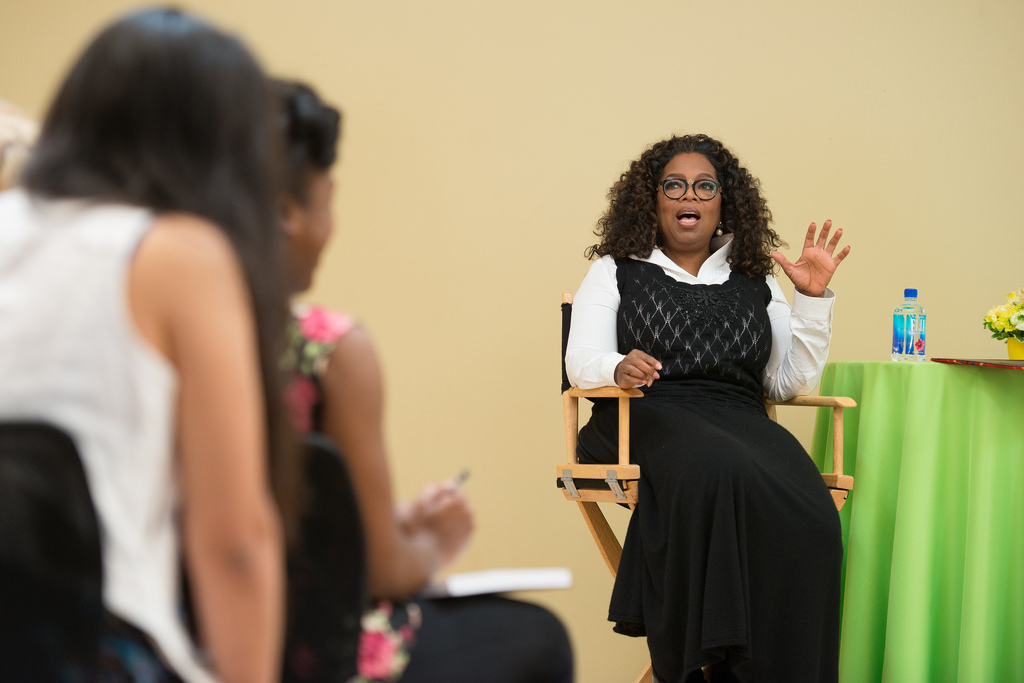At an intimate, invite-only event at the Black Community Services Center on Monday, “Performing and Producing Theater and Film,” Oprah commanded an audience of about 30 people, speaking with the same sense of charisma and energy that propelled “The Oprah Winfrey Show” into fame. Yet the charisma and generosity embodied in her television persona rang authentically powerful in person, where she conveyed a true sense of kindness and generosity, taking the time to look everyone in the room in the eye and personally thank them for listening to her. While she may have talked less about theater and film in an audience mostly comprised of theater majors and members of the Institute for Diversity in the Arts, no one seemed to mind, for her personal stories and life lessons were just as, if not more, compelling.
What began as a story about Oprah’s work acting in the movie adaptation of “The Color Purple” (and eventually producing the Broadway Musical “The Color Purple”) soon segued into a discussion about life, philosophy and spirituality. Upon seeing the similarities between the book and her own life, Oprah became obsessed with “The Color Purple,” eventually buying enough copies to hand out to people on the street. When she learned about the movie adaptation of “The Color Purple,” she knew she had to be in that movie, even if she was simply the “best girl” at the end of the credits. She auditioned for a part in the movie and knew she was destined to be in it when she was asked to read opposite a character named “Harpo,” which is Oprah’s name spelled backwards.

But, after not hearing back from the director from months, she called him, and he answered by saying “You don’t call me. I call you. I have real actors auditioning for this movie.” Although she was very upset, she tried to finally let go of her desire for the role. When she was running on a track (at a place that she humorously called a “fat camp”), she began to pray and tried to let herself feel happy for whoever ended up playing the role. As soon as she let all of her desire go, she got a call saying that Steven Spielberg wanted to talk to her about the role, and that if she lost a pound, she might lose this part. “I stopped by the Dairy Queen on the way home,” she quipped.
She used this story as a launching pad to talk about life and philosophy, focusing on the power of letting go. She said that you should never want something so much that you could not live without it; you should always be able to let it go. Only when you are able to truly let go is when you get what you desire. “You do not find a soulmate; they find you,” she said, answering a question about finding a soulmate, “and only when you are not looking everywhere for them.”

Her stories were gripping, and her life advice inspired furious note-taking. Oprah said that the reason we took notes was not because she was saying something new, but because we recognized the truth in what she was saying and that truth resonated with us. She was right — while her life advice was inspiring, she was hardly saying anything new. But, the things Oprah said seemed to be less important than how she said them, because she spoke with such assurance, warmth and radiance that statements that would otherwise seem obvious were awe-inspiring.
Oprah said some interesting things about performing and producing theater, discussing her desire to make her Broadway debut and the process of bringing “The Color Purple” to Broadway. But, Oprah’s major success during the event was the wisdom she shared about life and the exuberant energy she brought in sharing this wisdom.
Contact Steve at srathje ‘at’ stanford.edu.
